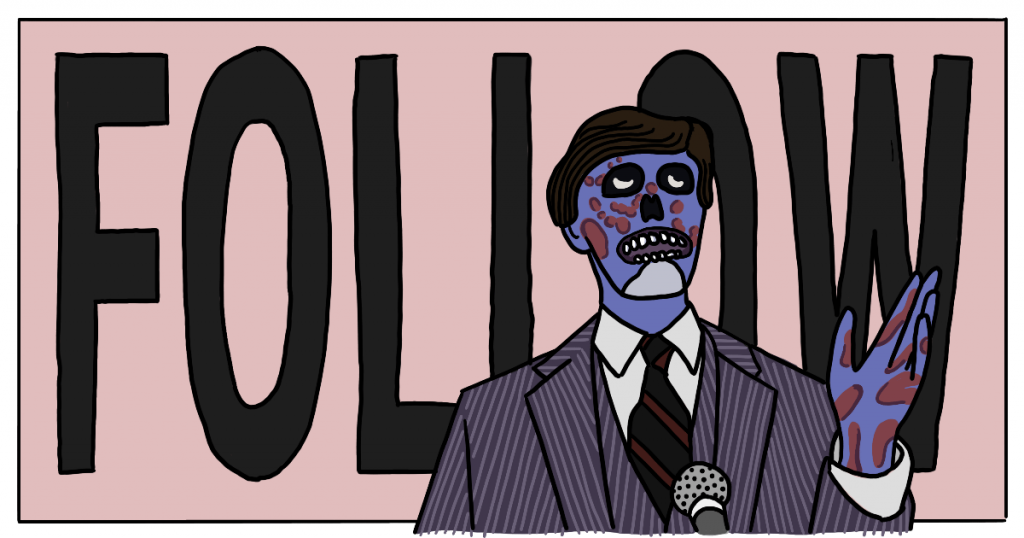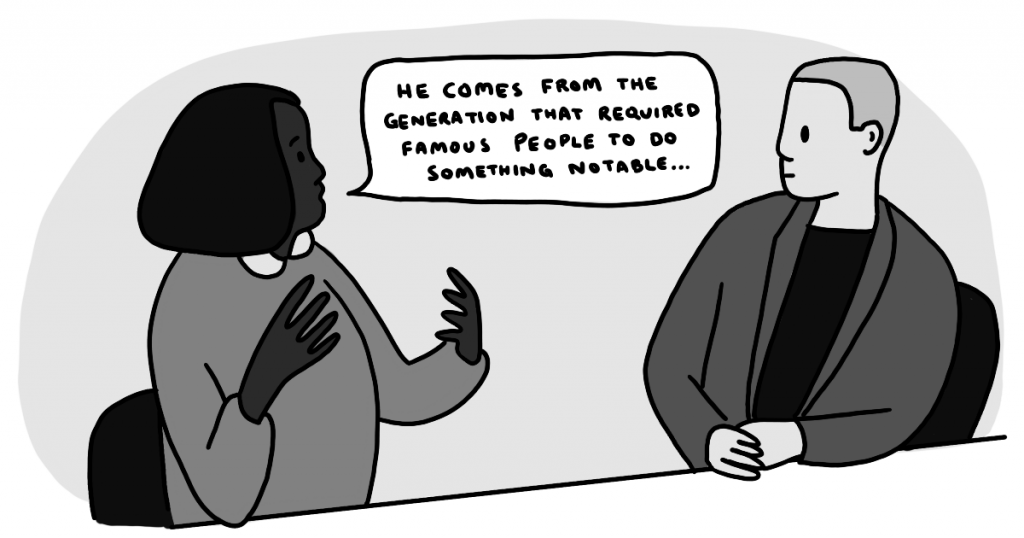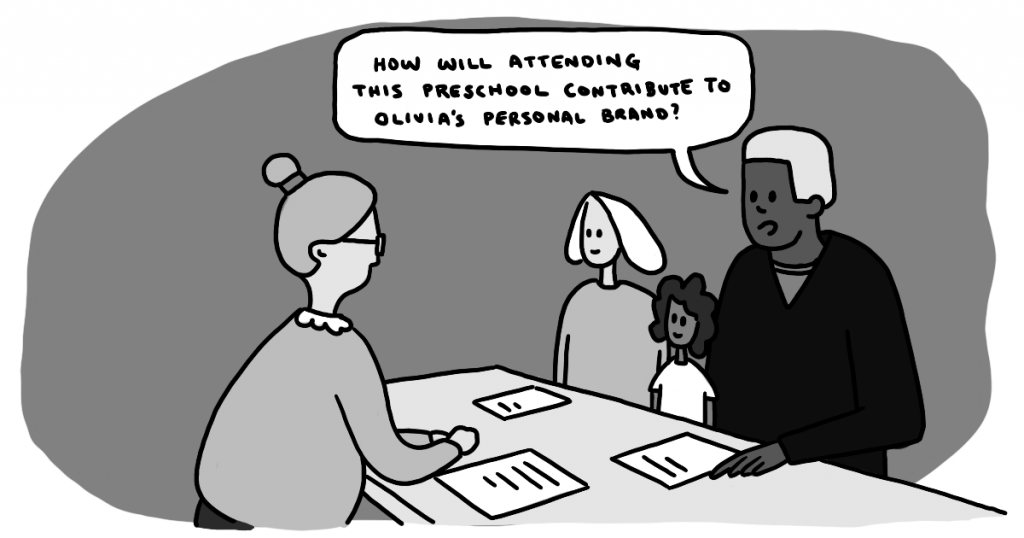How to Keep Yourself Sane, in Faketopia
TL;DR: Pretending to be successful is the new status quo. To break free of this damaging illusion, stop paying attention—and instead concentrate on offering value to a few.

It happened so quietly that few noticed it. The machines won—and it was the perfect victory. It started with the innovators. They created the virus, thinking it would bring people closer together. I doubt they even considered how the virus would rewire those infected.
Now, we live in Faketopia: a simulacrum of our previous world. We are servants of the algorithm.1 We feed it by pretending. We enhance images and stories to appear more compelling. We use follower counts to imply social capital. We sell expertise and insight we do not possess, propped up by dubious claims.
“Oh Eric, you vaccuous pussbag.” You sigh. I know… I know… It all sounds a little over the top. But is it?
Frightened? You can still turn back
We humans adapt to our environment, whatever it is. Soon, it becomes normal—no matter how strange it might be. Maybe that’s why we accept Faketopia for what it is. The change was so gradual that we failed to pay it much attention. Now it just is.
But, if you take pause, and actually look, you’ll see Faketopia everywhere. I caution you to think twice before continuing… Put this article away, and the story ends. You move on with your day and write me off as an internutbar2.
If you keep reading, I take no responsibility for what happens next. Once you’ve seen Faketopia, you can’t unsee it. You can’t take these sunglasses off. Once your eyes are open to the truth, they cannot be closed.
You know you’re in Faketopia, when…
I’m not sure when I first awoke to Faketopia. I’ve certainly written about such matters. I even took a break when I realized its impacts. Lately, though, it’s like someone dialed things up a notch. It’s as though pretending has overtaken all matters. It effectively is our reality. (You could run away into the woods, build a cabin, and escape all of this—but Instagram ruined that, too.)
In Faketopia, you do not perform a function, you hold a title. You are “Global” Marketing Manager, Digital “Transformation” Strategist, “Executive” Creative Director. This title need reflect little. Around these parts, we play a strange game of I’m Kind of a Big Deal Around Here™. What you’ve done—or can do—is largely irrelevant. What is, is your ability to suspend disbelief.
This is because in Faketopia, you fake it ’til you make it. If you aspire to work in startups you don’t start a company. You become a startup advisor, and dispense advice. If you want to be a marketer, you start a blog on “growth hacking” and hope no one asks for examples of your past successes. You want to be famous? Oh, now we’re talking! That’s Faketopia’s key export: people who want to be famous.

(The above is paraphrased from an actual conversation.)
So what?
I’m not opposed to pretending, in itself. We all have to start somewhere, and need to bolster our confidence. When everyone pretends, though, we find ourselves in an impossible context. It makes doing a job well, seem like not enough. It treats important work as trivial—because it isn’t “paradigm-shifting”. It leaves all of us chasing what everyone else appears to have—even though they don’t.
Start asking questions, and you’ll realize how true this is. A few years ago, I hung out with the owner of a famous design shop (you’ve used their stuff). I noted that our studio struggled at times. He then shared his story: He could only project cash flow for the following month—after that, he had no idea what would happen. He sort of vibrated with anxiety, and chain smoked to calm his nerves. Three months later he shut the thing down and took a job.
This is just one story. It is representative of many. (You think Elizabeth Holmes’ Theranos debacle is unique. Hah! Not a chance.) I worked with an executive in a publicly traded company who faked his way into the role, and didn’t know how to do his job. (This led to a tragic end.) I’ve met with successful business owners who admitted to me that they had no money in their bank accounts. I’ve supported marketers who couldn’t find a client. Meanwhile, I can’t tell you how many successful founders I know who are on the verge of emotional breakdown.

But no one talks about this. In light of all the seeming success we witness in Faketopia, few will admit that they struggle. They cannot acknowledge weakness, for fear that doing so will burst the illusion they’ve carefully crafted. The cost of this is isolation, depression, and often much worse.
How to set yourself straight
We don’t need to put up with any of this shit. In fact, leaving Faketopia is surprisingly easy. It’s just boring, and that’s why most won’t do it. Aspiring to greatness is fun. It gives you the sense that you’re special—and who doesn’t want to feel special? Plus, it takes a lot of hustling—and hustling feels productive—even when it yields nothing.
Ignore cosmic overtures
I suggest that the first step to leaving Faketopia is to say “fuck you” to Steve Jobs’ mythology of creating a dent in the universe. It’s just marketing bullshit that some treat as the gospel. You and me? We aren’t superheroes. We don’t need to be. We’re cosmically irrelevant, but locally necessary. The universe doesn’t care about you… but your kids, friends, and neighbours do. Get your priorities straight.
Avoid industry charlatans
Second, we must accept that little in life comes easily. Those with easy answers to hard problems probably want to sell you their book, course, or time. They can’t get your business if they tell you it’ll be hard. So, they feed you fake success stories, bullshit metrics, and hard to believe promises3. You know why that stuff is hard to believe? Because it’s a lie. Trust your gut. Steer clear of it.
Step away from the torrent
This isn’t as easy as it sounds. If these empty promises were occasional interruptions, they’d be easier to ignore. However, in Faketopia, they’re everywhere. This is like water. A drop won’t move you, but you can’t stand up to a wave. So, get out of it. If you’re a founder, stop viewing induporn4 (be it on Hacker News, Product Hunt, or Indie Hackers). And don’t spend any time on Linkedin; it is a cesspool of fakery. Instead, talk to your customers. This might not always seem glamorous, but it works.5

The real work
I was an early resident of Faketopia. For a while there, I enjoyed it. I really thought I was getting somewhere. In fact, for a moment or two, I thought I might be someone sort of special6. I took a long time to leave Faketopia. Now, I just want to get some of my friends out.
Like any bad habit, quitting often demands a new (and better) habit to replace it. For me, this comes in the form of simple, meaningful work. I help entrepreneurs nail down what they offer. With that in place, we determine how to present their companies. Then, we work to reach interested people and better service their existing customers. This isn’t easy or glamorous work—but, it’s valuable.
I have no superpowers. I cannot magically transform an organization. My job is like that of a shoe repair person. If your company’s presentation is broken, I might help fix it (depending on the level of damage). That’s it. No dents in the universe. Sorry.
This is my advice to you: Find a way you can afford others value. You needn’t service the whole world. Even 1 or 2 clients might be enough. Then, keep it simple. Practice your craft well, and do what you promised. You don’t need all the answers. You don’t need followers. No one expects you to perform miracles. Just do your job. And take your time—because most things worth doing demand this.

—
Homework
Watch Jiro Dreams of Sushi. In this documentary, you’ll witness retirement-aged people humbly practice their craft. After, take pause and ask yourself: Would I rather hustle for followers and admiration—or dedicate myself to doing my job well?
- Don’t believe me? Watch The American Meme and ask yourself whether my claims are actually that outlandish.
- Internutbar: Portmanteau of internet and nutbar
- I haven’t yet met a growth or SEO expert who can actually do what they claim
- Induporn: The second portmanteau of the day: industry + porn
- “But what about when I need a little break?” you ask. Buy a book.
- I assure you, this was a fleeting moment.
I’m @karj and the above is just my opinion. Looking for more? Here’s a full list of articles and information on my books. This is what I’m doing now, and what I don’t do. I’d love it if you tried Emetti on your website!